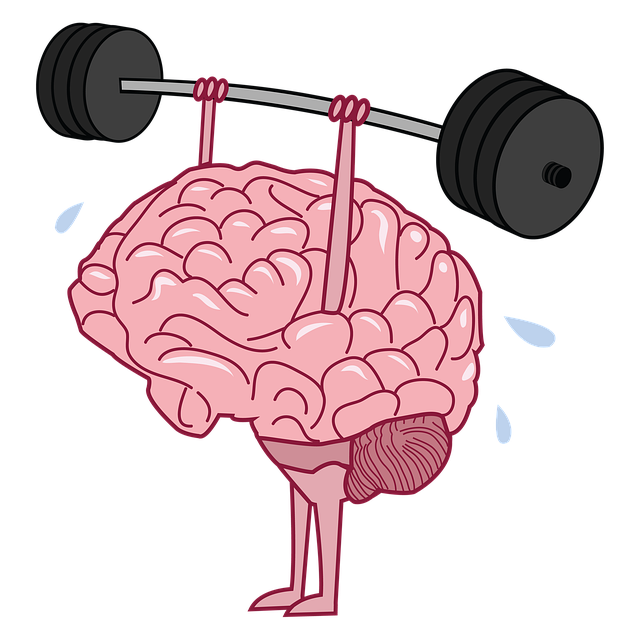Denver Gambling Therapy offers a holistic approach to recovery, focusing on Recovery, Resilience, and Growth Mindset (RFM). Through risk assessment, tailored resilience-building exercises, and mental wellness coaching, they equip individuals with coping mechanisms and emotional tools. Rigorous evaluation measures the success of their programs aimed at enhancing mental wellness and preventing relapse, empowering clients to face life's challenges without harmful behaviors.
“In the realm of Denver gambling therapy, Resourceful Front (RFM) exercises have emerged as a powerful tool for fostering resilience. This article delves into the significance of RFM in addressing complex gambling behaviors and its integral role in the therapeutic process. We’ll explore a step-by-step guide to implementing resilience-building exercises, highlighting their effectiveness in measuring success and long-term impact. By understanding RFM, therapists in Denver can revolutionize recovery journeys.”
- Understanding RFM and Its Role in Denver Gambling Therapy
- Implementing Resilience-Building Exercises: A Step-by-Step Guide
- Measuring Success and Long-Term Impact of RFM in Gambling Recovery
Understanding RFM and Its Role in Denver Gambling Therapy

Understanding RFM, or Recovery, Resilience, and Growth Mindset, is pivotal in the context of Denver Gambling Therapy. This therapeutic approach recognizes that addressing gambling addiction requires more than just treating symptoms; it involves fostering resilience to prevent relapse and enhancing overall mental health. By integrating RFM principles, therapists in Denver Gambling Therapy help individuals develop coping strategies, build a strong support network, and cultivate a growth mindset—all essential components for long-term recovery.
In the heart of Denver’s vibrant community, these therapeutic interventions extend beyond traditional crisis intervention guidance. They incorporate compassion cultivation practices to nurture empathy, self-compassion, and emotional regulation—key factors in Mental Health Awareness. Through these comprehensive methods, individuals not only overcome gambling addiction but also learn valuable skills for navigating life’s challenges with enhanced resilience and well-being.
Implementing Resilience-Building Exercises: A Step-by-Step Guide

Implementing Resilience-Building Exercises: A Step-by-Step Guide
At Denver Gambling Therapy, we understand that building resilience is a crucial component of mental wellness. To help individuals navigate life’s challenges more effectively, we’ve developed a structured approach to integrating resilience-building exercises (RBE) into therapeutic practices. The first step involves conducting a comprehensive Risk Assessment for Mental Health Professionals to identify potential triggers and vulnerabilities. This foundation allows therapists to tailor RBE programs to individual needs, ensuring they’re both effective and relevant.
Next, we focus on Mental Wellness Coaching Programs Development. Through regular sessions, coaches guide clients through exercises like mindfulness practices, cognitive reframing, and stress management techniques. These activities empower individuals to regulate their moods, foster a positive mindset, and enhance emotional resilience. Over time, as clients become more adept at these strategies, they develop stronger coping mechanisms, enabling them to better handle stressful situations and promote overall mood management.
Measuring Success and Long-Term Impact of RFM in Gambling Recovery

Measuring success and assessing the long-term impact of RFM (Recovery Focused Mindfulness) in gambling recovery is a critical aspect that often receives less attention than it deserves. At Denver Gambling Therapy, we employ rigorous evaluation methods to ensure our programs effectively foster resilience and promote lasting behavioral changes. This involves tracking key metrics such as adherence rates, self-reported improvements in emotional well-being, and reductions in gambling-related behaviors over time.
Through ongoing assessments and follow-up sessions, we gauge the integration of conflict resolution techniques and emotional intelligence development within our RFM framework. These strategies are instrumental in helping individuals manage triggers, cope with stress, and build healthier relationships—all vital components for sustained recovery. The ultimate measure of success is not just the absence of gambling but also the enhanced mental wellness coaching programs participants develop, allowing them to navigate life’s challenges without resorting to harmful behaviors.
Denver Gambling therapy has seen significant advancements with the integration of RFM (Recovery Focused Motivation) and resilience-building exercises. By understanding an individual’s risk factors, triggers, and motivations, these therapeutic approaches enable a more personalized and effective path to recovery. The step-by-step guide provided offers a practical framework for implementing these strategies, while measuring success ensures long-term positive impacts on those seeking freedom from gambling addiction. Through RFM, Denver Gambling Therapy is revolutionizing the way we support individuals in their journey towards lasting recovery.














